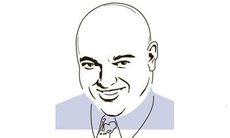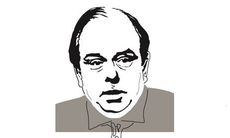Bradley Manning's guilt — and ours
The accused leaker to WikiLeaks appears to have acted out of idealism. Now that we've seen the results of our wars, can we say the same?
Government officials and apologists for America's wars are furious at Bradley Manning. The ruddy-cheeked Army private, now in solitary confinement in Quantico, Virigina, allegedly released classified army documents to WikiLeaks, the controversial whistleblower protection website. Manning appears to be the source of the video WikiLeaks released under the name “Collateral Murder,” which shows a U.S. Army helicopter crew killing more than a dozen civilians with a mounted machine gun. Manning is also suspected to be a source of WikiLeaks' “Afghan War Diaries,��� the massive trove of classified files detailing routine military operations in Afghanistan. The series of New York Times stories based on the files paints a grim picture of a mission hampered by endemic disorganization, double-dealing allies, and frequently deadly error.
Iraq and Afghanistan have produced more than 100,000 corpses.
Rep. Mike Rogers, a Republican from Michigan, has called for Manning's execution on grounds of treason. Washington Post columnist Marc Thiessen, the former Bush speech writer who rose to prominence through his aggressive defense of state-sanctioned torture, has called WikiLeaks a “criminal syndicate” -- stopping just short of demanding the invasion of Iceland for the robust legal protections it affords organizations like WikiLeaks and its founder Julian Assange. Admiral Mike Mullen, the chairman of the Joint Chiefs of Staff, said that Assange might already have on his hands “the blood of some young soldier or that of an Afghan family."
Subscribe to The Week
Escape your echo chamber. Get the facts behind the news, plus analysis from multiple perspectives.

Sign up for The Week's Free Newsletters
From our morning news briefing to a weekly Good News Newsletter, get the best of The Week delivered directly to your inbox.
From our morning news briefing to a weekly Good News Newsletter, get the best of The Week delivered directly to your inbox.
This idea – that Manning and WikiLeaks have imperiled Afghani informants or American troops– is now the leading charge against them. “We know for a fact that people will likely be killed because of this information being disclosed," Rep. Rogers said.
Rogers did not provide evidence for his “fact,” but one fact beyond dispute in our wars in Iraq and Afghanistan is this: they have killed people by the thousands. In fact, the two wars combined have produced well more than 100,000 corpses. If putting people in harm's way is a damning criticism of Manning, then what are we to make of those who have cheered on, voted for, and managed America's wars? Is all this killing justified or not? Is there a legitimate aim that will somehow redeem all this death? These questions are the backdrop against which we judge the deeds of Bradley Manning and the efforts of WikiLeaks.
The bloody events portrayed in the WikiLeaks' “Collateral Murder” video seem gratuitously malign. It is no consolation to know that the victims were riddled with bullets in accordance with military protocol. (Again, for what?) Consequently, it takes no great empathy to understand Manning’s desire to expose such savage, pointless destruction of human life, or his desire to distance himself from it.
“I don't believe in good guys versus bad guys anymore,” Private Manning confessed in an instant message chat with Adrian Lamo, the ex-hacker who turned him in. “I mean, we’re better in some respects,” he clarified. “[W]e’re much more subtle... use a lot more words and legal techniques to legitimize everything. It’s better than disappearing in the middle of the night. But just because something is more subtle, doesn’t make it right.”
Sign up for Today's Best Articles in your inbox
A free daily email with the biggest news stories of the day – and the best features from TheWeek.com
Manning's disillusionment may strike unfaltering patriots as the germ of his betrayal. But lazy love of country blinds us to the possibility of our country's wrongdoing. What’s more, it blinds us to the possibility that Manning's softening of partiality, his recoil from slaughter, is the morally right response to what he had seen.
It is hard to sense our own complicity in injustice, especially when the victims of injustice appear remote. But Manning saw that he was an adjunct to injustice and senseless death, and was moved to risk his freedom, possibly his life, to do something about it. After telling the duplicitous Lamo that he had forwarded 260,000 State Department cables to WikiLeaks, Manning explained his aim: “Hopefully worldwide discussion, debates, and reforms,” he wrote. “[I] want people to see the truth, regardless of who they are, because without information, you cannot make informed decisions as a public.” Though he has soured on the state, Manning evidently remains an idealist animated by the possibly naïve hope that a democratic public that has seen what he has seen will feel moved, as he was moved, to do something about it.
Glenn Greenwald argues that WikiLeaks has generated so much animosity because “they breached the Absolute Wall of Secrecy behind which our Government, and its private National Security and Surveillance State partners, operate.”
This is a big part of the story, but not the only part. Private Manning and WikiLeaks have also created the possibility that millions of Americans will now come face to face with the same ugly truths that led Manning to conclude that he had obligations to humanity weightier than an oath to the state. The wars in Iraq and Afghanistan have left Americans with blood on our hands, and on our wallets -- a truth most of us prefer to avoid. Unfiltered facts and uncensored video about what has been done on our behalf, on our dime, are “dangerous” precisely because they lead to mortifying moral clarity when it is face-saving obfuscation that we crave. Secrets sold by a grasping turncoat would not threaten America's wars. It is Manning's idealistic exercise of conscience, and the faint possibility that we are as good as he thinks we are, that has agitated the lords of war.
Create an account with the same email registered to your subscription to unlock access.
-
 Caitlin Clark the No. 1 pick in bullish WNBA Draft
Caitlin Clark the No. 1 pick in bullish WNBA DraftSpeed Read As expected, she went to the Indiana Fever
By Peter Weber, The Week US Published
-
 Today's political cartoons - April 16, 2024
Today's political cartoons - April 16, 2024Cartoons Tuesday's cartoons - sleepyhead, little people, and more
By The Week US Published
-
 Trump criminal trial starts with rulings, reminder
Trump criminal trial starts with rulings, reminderSpeed Read The first day of his historic trial over hush money payments was mostly focused on jury selection
By Rafi Schwartz, The Week US Published
-
 The FCC needs to open up about LightSquared
The FCC needs to open up about LightSquaredfeature A politically-connected company that wants to build a massive 4G internet network seems to have benefited from some curious favors from the feds
By Edward Morrissey Last updated
-
 Do you believe in magic?
Do you believe in magic?feature The House speaker's debt-ceiling proposal is smoke and mirrors. That's what's good about it
By David Frum Last updated
-
 Will both sides blink on the debt ceiling?
Will both sides blink on the debt ceiling?feature With the financial credibility of our nation at stake, and both parties facing massive political risks, lawmakers might agree to a grand bargain after all
By Robert Shrum Last updated
-
 Dine and dash?
Dine and dash?feature Politicians are jockeying for advantage as the bill comes due on our gaping national debt. But without an agreement soon, we'll all be stuck with the check
By David Frum Last updated
-
 The GOP's dueling delusional campaign ads
The GOP's dueling delusional campaign adsfeature Slick ads attacking Jon Huntsman and Tim Pawlenty as reasonable moderates show just how divorced from reality today's Republican Party is
By David Frum Last updated
-
 Bibi turns on the charm
Bibi turns on the charmfeature In the fight over Israel's borders, Netanyahu takes the upper hand
By Edward Morrissey Last updated
-
 Get rich slow
Get rich slowfeature A cheap U.S. dollar is no fun, but it will get the job done
By David Frum Last updated
-
 Bin Laden, the fringe Left, and the torturous Right
Bin Laden, the fringe Left, and the torturous Rightfeature The killing of the architect of September 11 has provoked predictable remonstrance from the usual suspects
By Robert Shrum Last updated